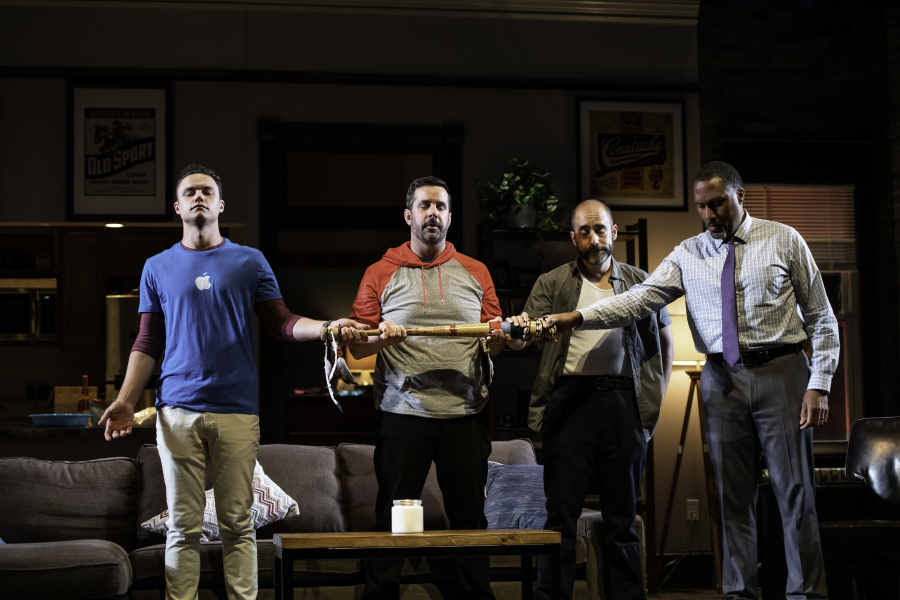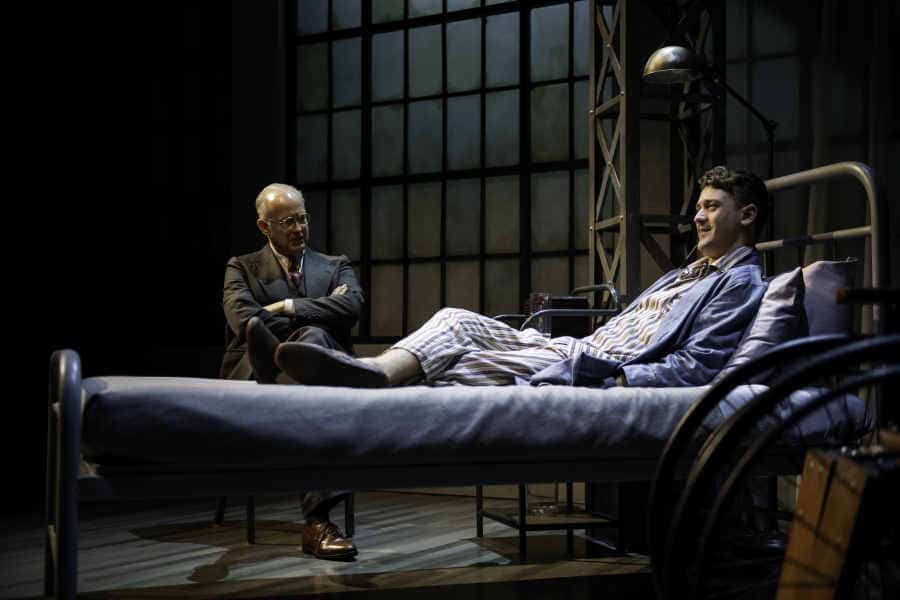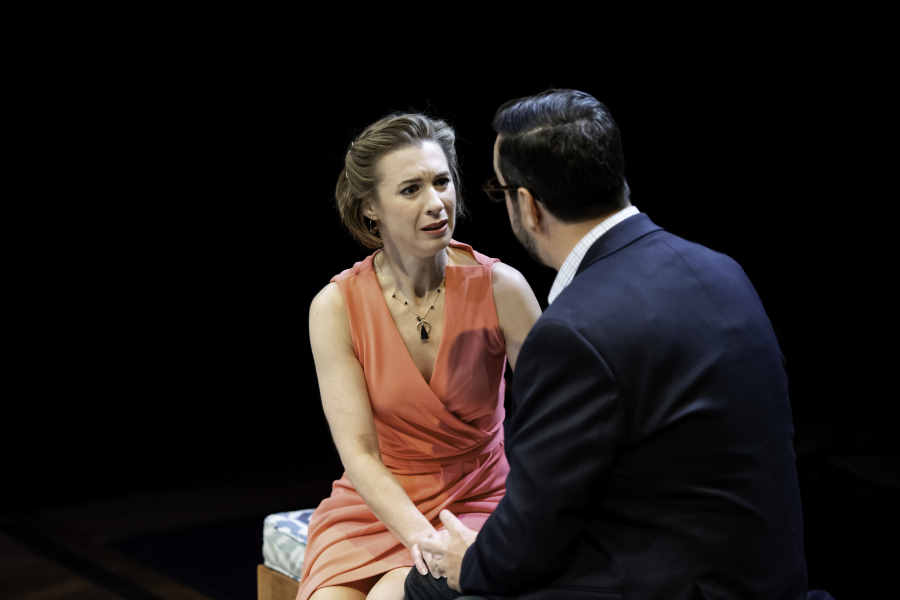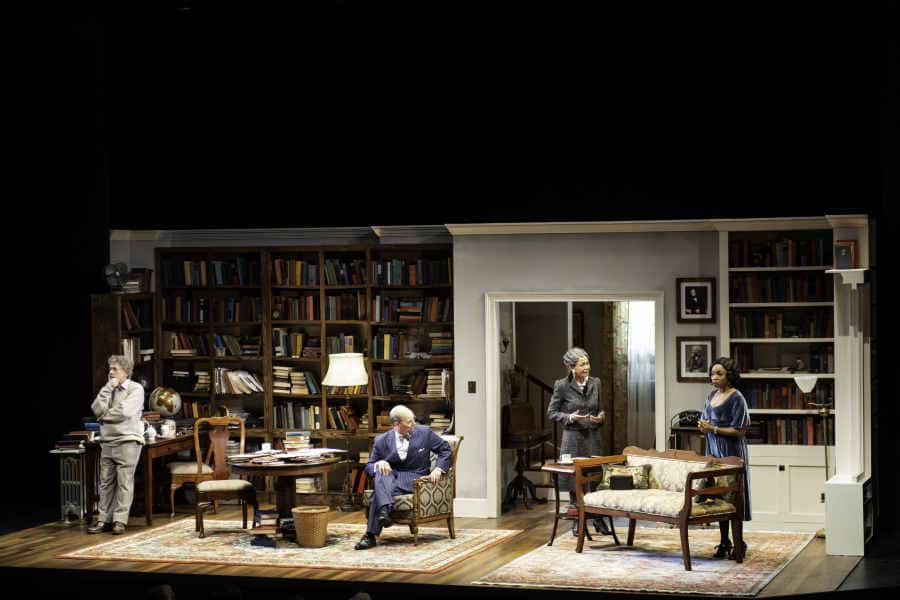
by Jack Gohn | Jul 12, 2019 | The Close Up, Theater Reviews and Commentary
Support Group for Men will send you away happy. There is nothing profound or challenging in this show: just a well-crafted and very funny comedy of manners, specifically the manners of the male of Species Homo Americanus, youthful to mid-life, as observed in a middle-class Chicago habitat.

by Jack Gohn | Jul 11, 2019 | The Close Up, Theater Reviews and Commentary
Dougherty unspools the stories of Chester and Dr. Cotton, his treating physician, with novelistic skill. The feeling of truly being in the World War II period never lifts. The stories reel us in: Chester’s of the way he deals with his injury, and Cotton’s of hospital life in wartime, with its politics, scandals, and sexual misbehavior. This show is the whole package: a polished, intriguing, thematically-consistent but otherwise dissimilar pair of stories well-told, leaving one profoundly moved.

by Jack Gohn | Jul 11, 2019 | The Close Up, Theater Reviews and Commentary
Then the government, represented by its functionary Lucius (Michael Rogers), brings in Shimeus (Wade McCollum), a derelict of another sort, whimpering and traumatized by an arson that killed everyone else in his family. Lucius orders the Browns to harbor Shimeus as a guest. Almost immediately, however, Shimeus stops whimpering, and, more importantly, stops behaving like a guest, and more like an invader – well maybe not a declared invader but a lot like a space alien whose intentions toward neighbors aren’t entirely clear but don’t seem encouraging, a la the plant in Little Shop of Horrors.

by Jack Gohn | Jul 10, 2019 | The Close Up, Theater Reviews and Commentary
It’s an old trick, but a good one: Set two contrasting dramatic tones (usually domestic comedy and dread) against each other and let them fight it out throughout a play. It’s the trick playwright Greg Kalleres employs to advantage in Wrecked,

by Jack Gohn | Jul 9, 2019 | The Close Up, Theater Reviews and Commentary
The drama works because of the intriguing way the characters’ ideas about how to act in response to Marian Anderson’s two provocative exclusions (first from Nassau Inn and then from Constitution Hall) shift repeatedly in response to new information, so that consensus is almost impossible to achieve, at least until the play’s very end. Anderson seeks progress through song, unimpeachable behavior and an avoidance of politics; Albert Einstein wants an end to both racism and antisemitism, and by the end is very worried about the Bomb; Mary Church Terrell embraces confrontation because all else seems to fail; and Abraham Flexner tries hard to protect the Institute as a means of keeping the Holocaust from consuming absolutely all Jews, even though he can save only a few.






 I lived in London and Vienna before coming to the United States, and grew up mainly in Ann Arbor. I was writing plays and stories as early as grade school. My undergraduate years at the University of Pennsylvania, where I first reviewed theater, for the college paper, were succeeded by graduate study at the Johns Hopkins University, where I earned a doctorate in English Literature.
I lived in London and Vienna before coming to the United States, and grew up mainly in Ann Arbor. I was writing plays and stories as early as grade school. My undergraduate years at the University of Pennsylvania, where I first reviewed theater, for the college paper, were succeeded by graduate study at the Johns Hopkins University, where I earned a doctorate in English Literature.